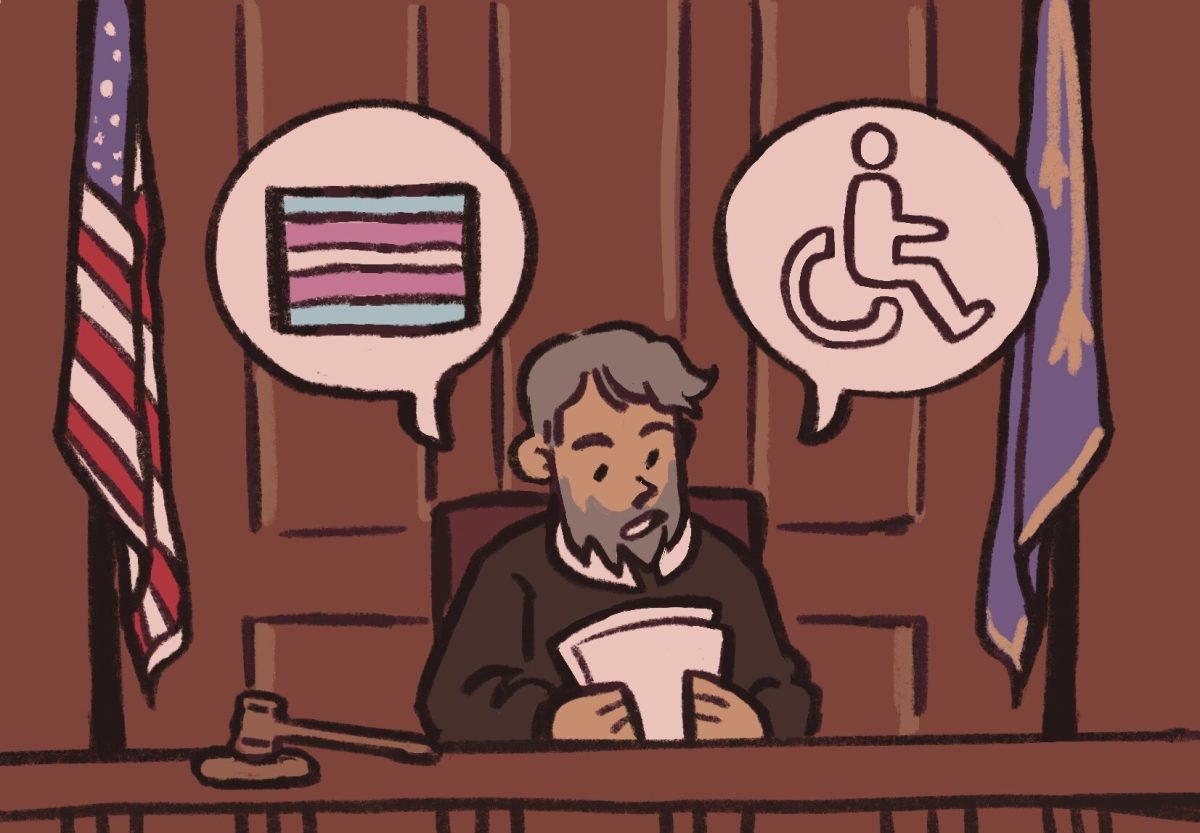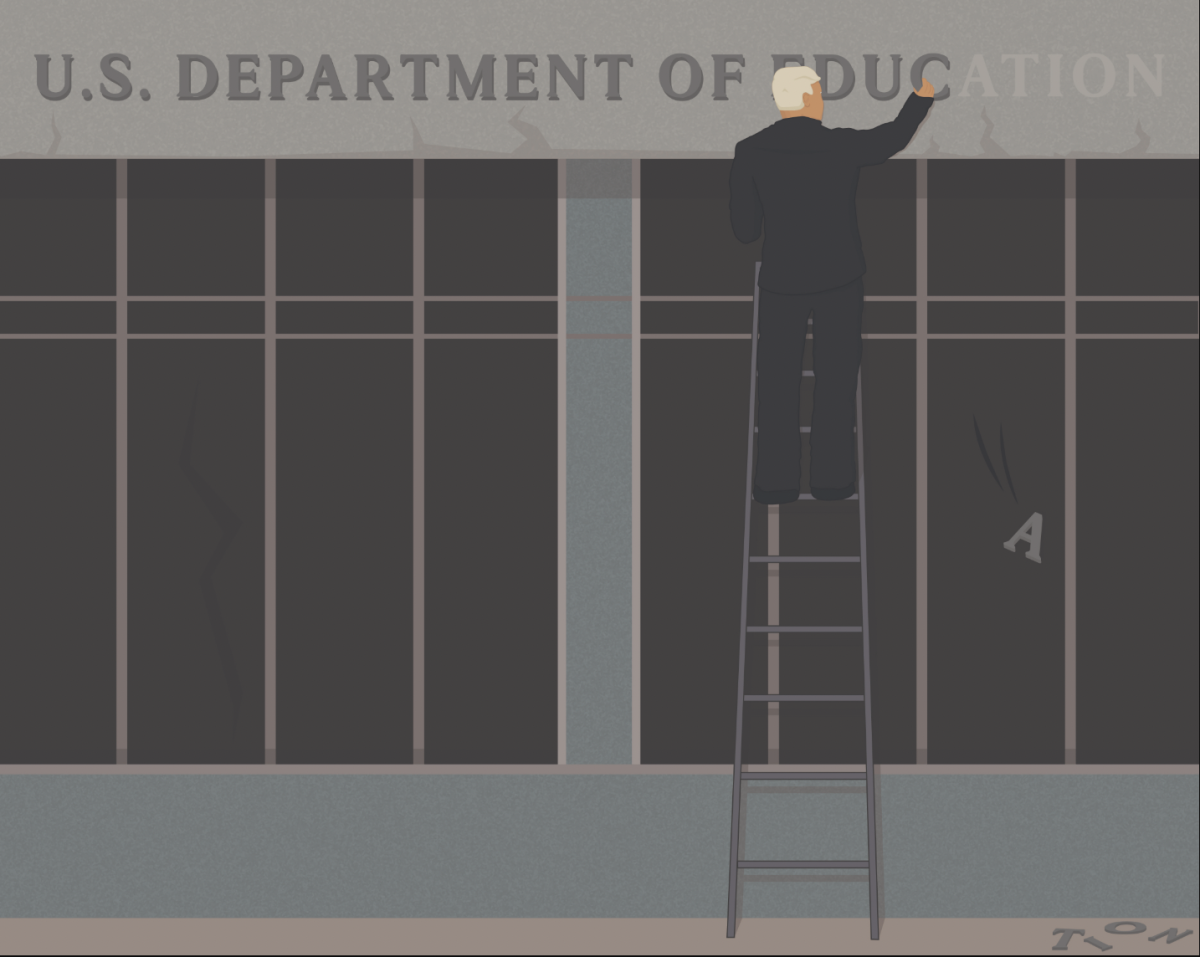Texas and 16 other states involved as plaintiffs filed to sue Xavier Becerra, former secretary of Health and Human Services, after the Biden Administration added gender dysphoria as a disability under Section 504 of The Rehabilitation Act of 1973. However, the lawsuit calls Section 504 “unconstitutional” and plans for its removal entirely, actively posing a threat to disability rights.
Disability rights and Section 504 ensure equal opportunities for all students. Threats to these rights are inhumane and should be fought against.
Gavin Steiger, Texas State Disability Services director, said gender dysphoria could be a disability because it implies psychological distress within the person experiencing it.
“Psychological distress results from [inconsistency] between one’s sex assigned at birth and one’s gender identity,” Steiger said.
Section 504 prohibits discrimination against disabilities in any federally funded facility. If the Supreme Court reviews Texas v. Becerra schools nationwide risk losing funding to support 504 plans, meaning Texas State could lose support for students with disabilities.
Ezra Schlicher, Bobcat Pride secretary said the trans community is an easy political target.
“I think trans people are an easy topic to get people riled up,” Schlicher said. “So if you have an agenda, that’s the fastest way to do it, especially within the conservative party right now.”
According to Texas Attorney General Ken Paxton, redefining Section 504 to include gender dysphoria as a disability is harmful to Texas because it would implement accommodations allowing “bathroom usage, pronoun usage and dress codes to be based on ‘gender identity’ rather than biological sex.”
Schlicher said Paxton’s reasoning creates more problems than it solves because it relies on misinterpretation.
“I think that almost dilutes the argument of accommodations in a way,” Schlicher said. “It also dilutes the argument of pronouns and bathroom usage, because they’re two very separate concepts and they exist in very different spaces.”
The National Center For Education Statistics states 21% of college students report having a disability and 54% of them identify as non-binary, an identity commonly categorized under the transgender umbrella.
Steiger said Section 504 protects those with disabilities under the use of federal funding.
While the Americans with Disabilities Act (ADA) would still be in effect if the case is ruled on, the acts each propose the counteraction of disability discrimination and how it is supposed to be handled. However, Section 504 is exclusive to The Rehabilitation Act which provides federal funding for 504 plans and encourages the elimination of disability discrimination.
Access Living stated successful attempts at eliminating Section 504 could lead to the targeting and possible overturning of other civil rights laws. As of Feb. 19, a Joint Status Report for the review of the case was filed with the Department Of Justice, and it remains an ongoing federal case.
To advocate for the removal of the case, students can submit an online form with a complaint at the Texas Attorney General’s website. Students with accommodations can speak to Disability Services at Texas State to ensure their safety. Additionally, students can get involved in student organizations already fighting.
“Join protests, I know there are things popping up in Austin right now especially, so if you’re able to get out there, look into it,” Schilcher said. “Join your on-campus groups. Do your research because a lot of these new legislations are very complex and the wording in them is very specific.”
It is vital for students to advocate for their disabled peers. The potential removal of Section 504 should not be an option.
– Shar Kiefer is a political science freshman





















Burden • Mar 5, 2025 at 9:48 pm
This is BS! <1% is not statistically meaningful in any analysis. The state has an overwhelming responsibility to protect society against individuals who threaten the well being of the majority. Disabilities should be based upon physical limitations, not emotional limitations. Especially when those emotional limitations have the potential to harm others in society.